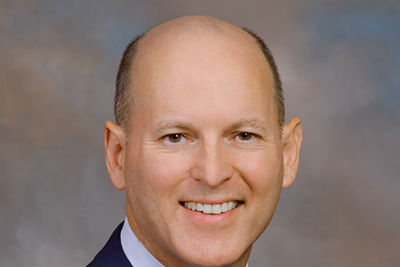By John Asbury

A recent Goldman Sachs survey confirms that more than half of U.S. small business owners say their business will not be able to continue operating more than three months due to the economic strain caused by the coronavirus pandemic. At least 10 million Americans applied for jobless benefits in the last two weeks of March, overwhelming many states’ unemployment offices.
Part of the recent $2.2 trillion stimulus package included the passage of the U.S. Small Business Administration’s Paycheck Protection Program (PPP). The PPP gives small businesses potential access to a safety net to keep their workforce employed during the COVID-19 crisis.
Banks are now economic first responders and are being asked to play a major role in the delivery of the relief. Many financial institutions across the country and their staff are moving heaven and earth to bring the specially-structured SBA loan to market – in record time – to help our business clients, their employees and the communities we all serve.
Considering the speed with which this relief effort has come together and the dramatic demand it is addressing, it is naturally fraught with challenges. The government approved the stimulus package on March 27 and the SBA began to move fast. Banks were given a week to prepare for and launch a 1 percent interest rate forgivable loan program that more closely resembles a grant. Many of the important loan details and necessary documentation were not available until late the night before the application process went live. Even with the challenges, the banks and the SBA are working together to make this as seamless as possible for small business owners.
At Atlantic Union Bank we made the PPP our top priority across the bank last week, and at least half of our more than 2,000 employees are now involved in some way implementing the program. We launched a new and complex lending product – something that typically takes months to do. We developed a new website and workflow infrastructure to accept and process applications and our Teammates are volunteering on weekends and after hours (some working well past midnight) so we can service our customers more quickly. These Teammates are leading the charge with energy, enthusiasm and great pride as they help our customers and communities in such a direct way. Since Friday, we received more than 5,000 applications for $1.2 billion dollars. The applications represent companies with a combined payroll of more than 216,000 workers.
While all banks are approaching this differently, we have the same goal in mind. The more small businesses we can help, the more Americans we keep employed and the stronger the recovery we can expect once this is all over. We view this as our patriotic duty and a moral responsibility we must accept. This is not just about our business clients. It is about their employees and ensuring they can continue to earn a paycheck. It is about their families that count on them for the income that pays their mortgage, puts food on the table, and pays their utilities.
Since Friday, April 3, small businesses have been racing to apply for their fair share of the $349 billion in forgivable loans available. The financial industry is working diligently to manage the high volume of applications. And rightfully so – business owners need answers about the program, need to apply now and hope to receive their money quickly. As the leader of a regional banking institution offering the SBA loan I can attest to the unprecedented levels of confusion and frustrations, but our priority is to help. The most important thing a bank can do is accept applications from all of their customers, and not just their borrowers or a privileged few, refine their processes to expedite approvals and continue to have empathy for their customers. The most important thing small business owner can do right now is apply without delay.
Who is eligible?
Essentially all small business owners who have 500 or less employees. Businesses in certain industries may have more than 500 employees if they meet the SBA’s size standards for those industries. Visit here for SBA business size guidelines. Businesses in the hospitality and food industry with more than one location may be eligible if their individual locations employ less than 500 workers. Sole proprietorships, independent contractors and self-employed persons are eligible as well as 501(c)(3) non-profits to include churches.
Starting April 3, small businesses and sole proprietorships were eligible to apply for the PPP. Starting April 10, independent contractors and self-employed individuals can apply for the PPP.
How do I submit an application?
Business owners should contact their bank immediately. Contact any bank where you have a business account to inquire about the program. Not all banks are in a position to take their client’s applications and some have specific restrictions. Due to overwhelming demand, banks will understandably prioritize their own customers and few have capacity to accept applications from noncustomers. So it is critical to find out now if your bank can help or if you need to find an alternative who can. Visit www.sba.gov for a list of SBA lenders.
What critical documents must I have as part of the application process?
In order to speed up the application process, it is important to submit all the necessary documentation upfront. Otherwise, the application will be reviewed, the bank will send back a note regarding missing information and you could end up having to start the process all over again. The application documentation is straightforward and includes your tax return, annual financial statement and evidence of payroll for the last year. Specific requirements are available on the SBA’s website or your bank’s application.
What happens when the money runs out?
Like other banks and small businesses themselves, we also worry that the rush will lead to a gap between what businesses need and what is made available through this initial funding. The SBA will be forced to cut off funding as they reach the $349 billion allocated to the initiative.
While banks cannot guarantee that the SBA will be able to fund all applicants, there is good reason to believe the President and Congress may approve additional funding. Atlantic Union Bank is creating a queue and should the initial funding run out we will hold our clients’ applications so that we can processes the loans at a future date if additional funding is made available.
I cannot stress enough that if you are a small business, contact your bank now. This is an incredible lifeline for your company, and you should take advantage of it. The process might not go as planned and it might not go as quickly as you expect it to, but we are doing everything we can to service our customers quickly and effectively. For Atlantic Union Bank, we are helping our customers weather this storm and we do not take that responsibility lightly.
The unprecedented COVID-19 pandemic is the defining moment of our generation as we simultaneously face a healthcare crisis and an economic crisis, but not a financial crisis. Unlike the Great Recession, this time around the American Banking system is a part of the solution and not the cause of the problem. Speaking for our company, we will do our part to help.
John Asbury, Atlantic Union Bankshares president and CEO, is a career banker with more than 30 years in commercial and corporate banking. Asbury was named chairman-elect of the Virginia Bankers Association, and he is slated to become the association’s chairman in June 2020.










